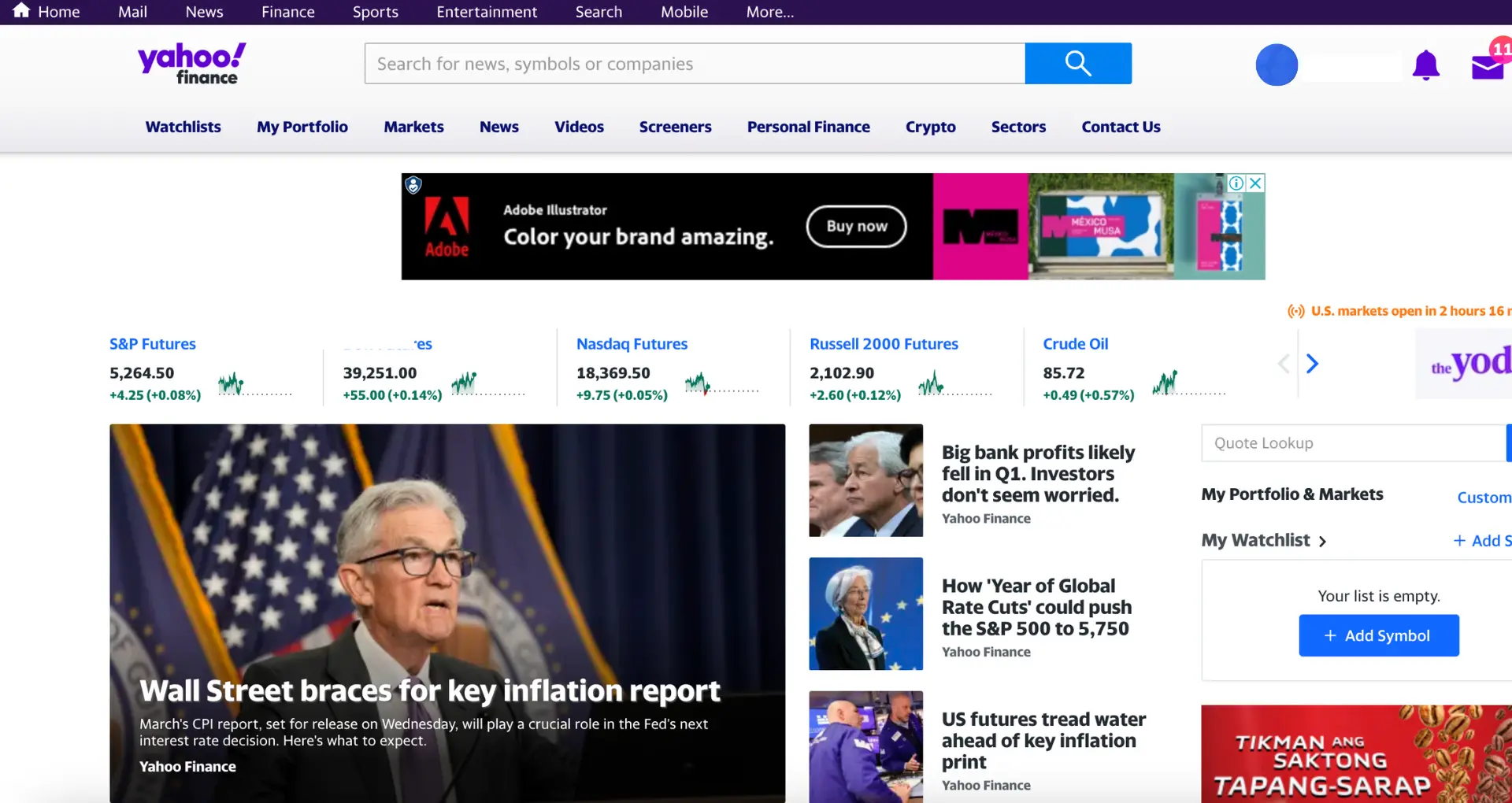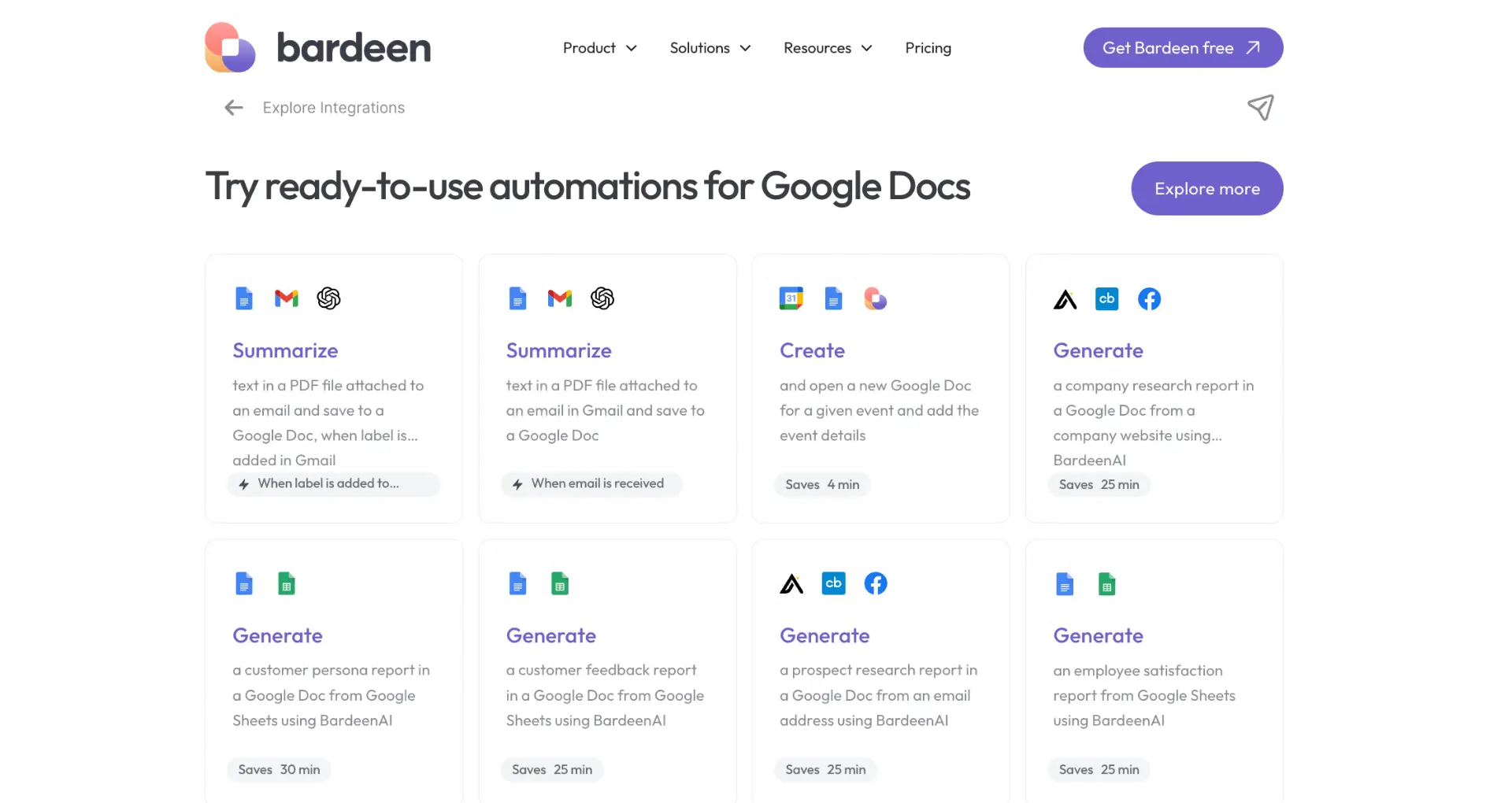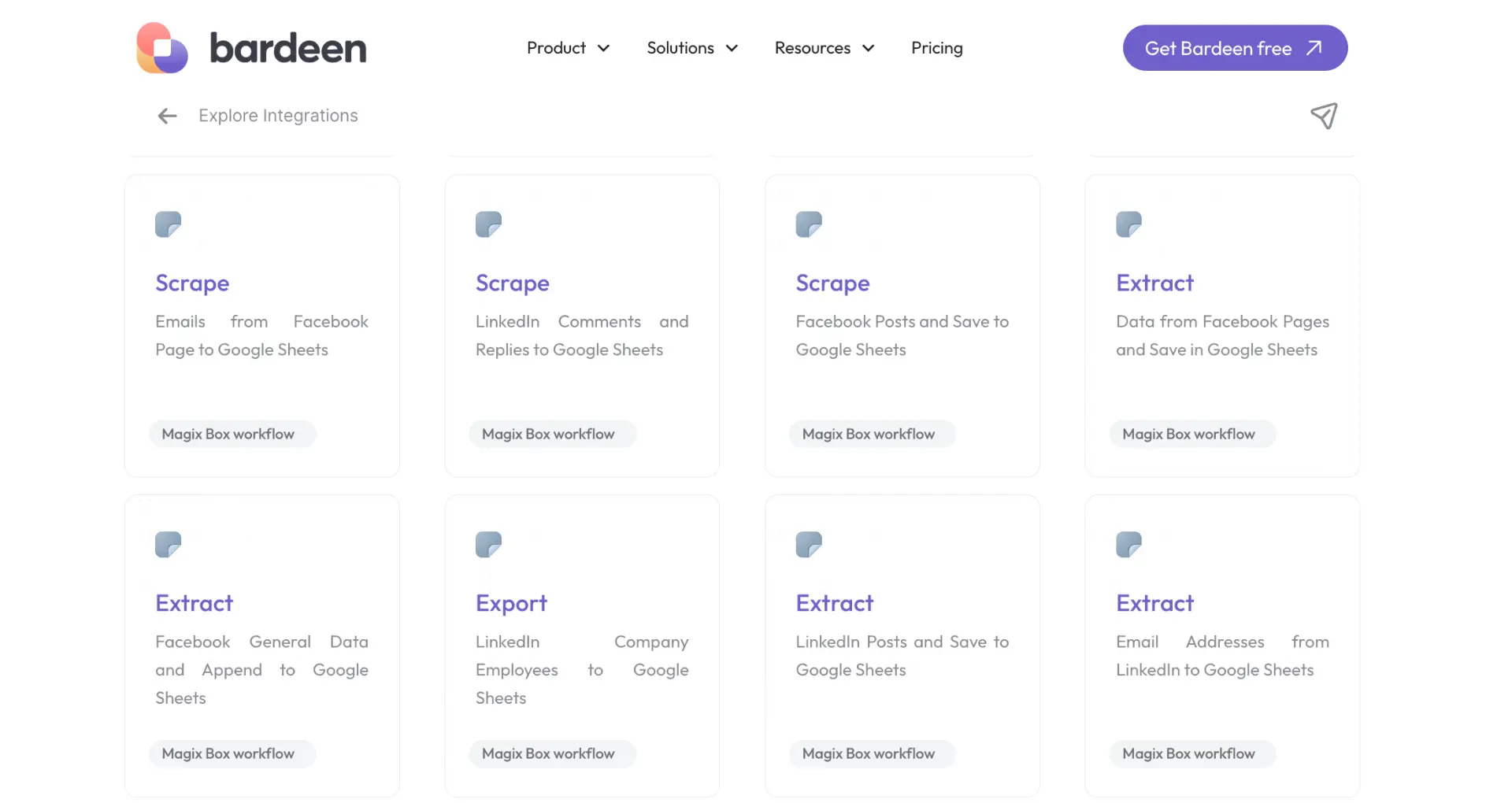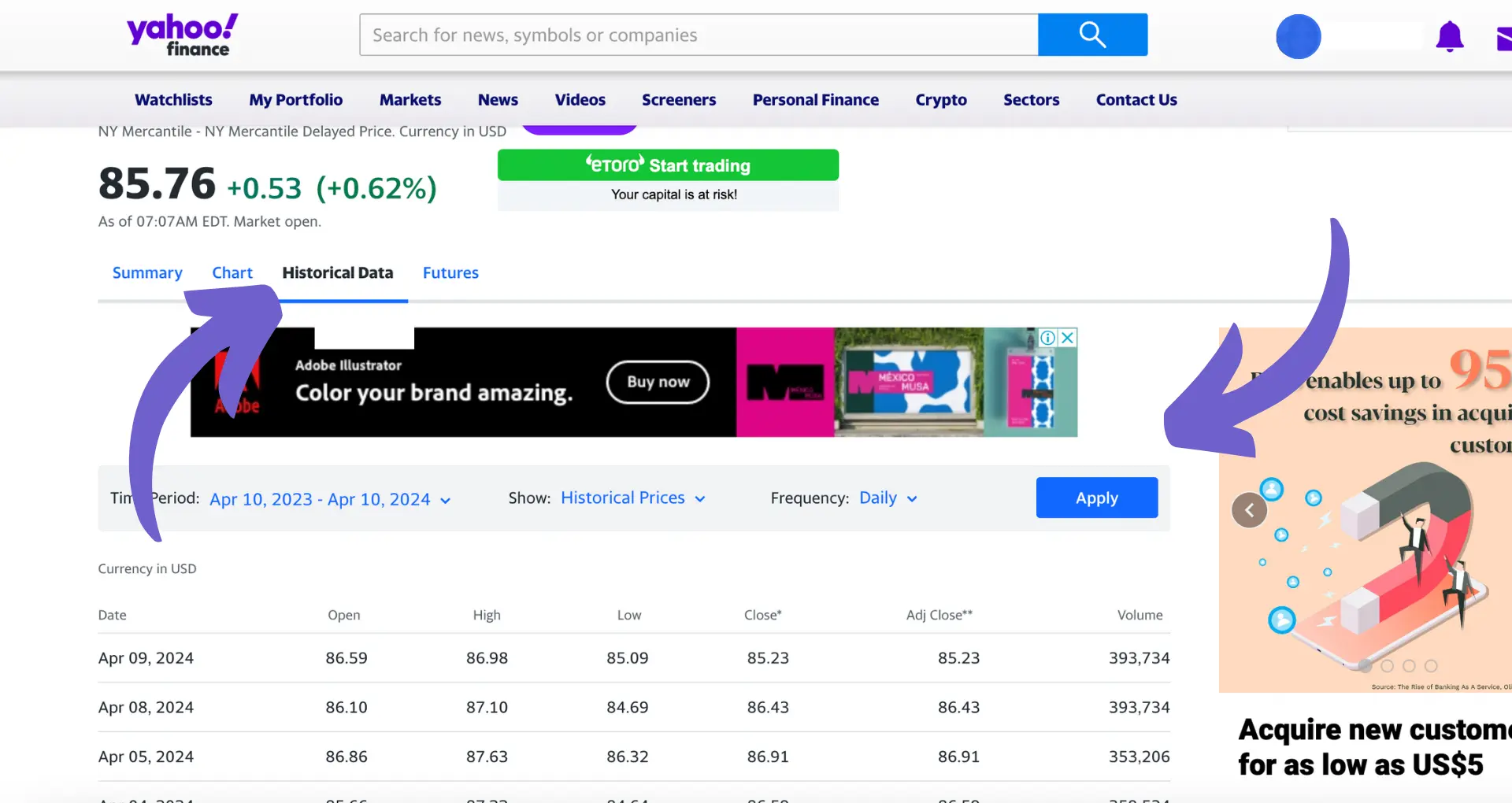Importing financial data from Yahoo Finance into Google Sheets is a powerful way to streamline your investment research and analysis. By integrating these two platforms, you can automatically pull real-time and historical data directly into your spreadsheets, saving time and effort. In this step-by-step guide, we'll walk you through the process of setting up your Google Sheets to import Yahoo Finance data, including using built-in formulas and custom Google Apps Scripts.
Introduction to Importing Yahoo Finance Data
Yahoo Finance is a vital data source for financial analysis and investment decisions. It offers a wealth of financial information, including stock prices, market summaries, and historical data. Integrating Yahoo Finance with Google Sheets allows you to connect Google Sheets and automate data retrieval for your financial analysis workflow.
By importing Yahoo Finance data into Google Sheets, you can:
- Access real-time and historical financial data directly in your spreadsheets
- Perform in-depth analysis and calculations using Google Sheets formulas and functions
- Create dynamic reports and dashboards that update automatically
- Save time and effort by eliminating manual data entry and updates

Google Sheets provides various methods to import data from external sources, including Yahoo Finance. You can use built-in functions, such as GOOGLEFINANCE, or leverage third-party tools and APIs for more advanced integration capabilities. In the following sections, we'll explore different techniques to import Yahoo Finance data into Google Sheets and harness the power of automated data retrieval for your financial analysis needs. For more advanced capabilities, consider using GPT for Google Sheets.
Setting Up Your Google Sheets for Data Import
Before importing Yahoo Finance data into Google Sheets, you need to set up your spreadsheet for efficient data management. Start by creating a new Google Sheets file or opening an existing one where you want to import the financial data.
Next, consider organizing your data tabs and columns:
- Create separate tabs for different datasets, such as stock prices, financial ratios, or historical data
- Use clear and concise headers for each column to identify the data being imported
- Leave enough empty rows at the top of your sheet to accommodate any additional information or formulas you may need
Proper organization of your Google Sheets file will make it easier to manage and update your financial data. It also allows for more efficient analysis and collaboration with others. You can also connect Microsoft Excel for added flexibility.
To access the necessary menus for importing data, locate the "File" menu at the top of your Google Sheets window. From there, you can find options for importing data from various sources, including Yahoo Finance.
By setting up your Google Sheets file with a clear structure and easy access to import menus, you'll be ready to start bringing in valuable financial data from Yahoo Finance. For more advanced features, consider using GPT in Google Sheets to automate data analysis.
Bardeen can help you connect Google Docs with Google Sheets to manage your financial data more efficiently. Save time and focus on the important analysis while Bardeen handles the rest.

Utilizing Google Apps Script for Custom Imports
Google Apps Script is a powerful tool that allows you to automate tasks and create custom functions in Google Sheets. To access Google Apps Script, follow these steps:
- Open your Google Sheets file
- Click on "Tools" in the menu bar
- Select "Script editor" from the dropdown menu
Once in the script editor, you can start creating your custom function to import Yahoo Finance data. Here's an example script that pulls stock price data:
function yahooF(ticker) { const url = `https://query1.finance.yahoo.com/v8/finance/chart/${ticker}`; const res = UrlFetchApp.fetch(url, {muteHttpExceptions: true}); const contentText = res.getContentText(); const data = JSON.parse(contentText); if (data && data.chart && data.chart.result && data.chart.result.length > 0) { const regularMarketPrice = data.chart.result[0].meta.regularMarketPrice; console.log(regularMarketPrice); return regularMarketPrice; } else { console.log("Error: Unable to retrieve market price."); return null; } }
Let's break down the script:
- The function
yahooFtakes a stock ticker as a parameter - It constructs a URL to fetch data from the Yahoo Finance API
- The script sends a request to the URL using
UrlFetchApp.fetch - It parses the JSON response to extract the regular market price
- If the data is available, it returns the price; otherwise, it logs an error and returns null
To use this custom function in your Google Sheets, simply enter =yahooF("TICKER") in a cell, replacing "TICKER" with the desired stock symbol. The function will retrieve the current price and display it in the cell. For more advanced data tasks, check out how to scrape data from websites using no-code tools.
Importing Data Using Built-In Google Sheets Formulas
Google Sheets offers several built-in formulas that allow you to import data from Yahoo Finance directly into your spreadsheet. These formulas include:
IMPORTDATA: Imports data from a given URL in CSV or TSV formatIMPORTHTML: Imports data from a table or list within an HTML pageIMPORTXML: Imports data from any of various structured data types including XML, HTML, CSV, TSV, and RSS and ATOM XML feeds
To use these formulas, follow these steps:
- Open a new or existing Google Sheets spreadsheet
- In a cell, enter one of the import formulas followed by the Yahoo Finance URL in parentheses
- For example, to import the current stock price for Apple (AAPL), use the formula:
=IMPORTXML("https://finance.yahoo.com/quote/AAPL","//fin-streamer[@data-symbol='AAPL']") - Press Enter to execute the formula and display the imported data
Here are some specific examples of using these formulas to import Yahoo Finance data:
- Importing historical stock prices:
=IMPORTDATA("https://query1.finance.yahoo.com/v7/finance/download/AAPL?period1=1262322000&period2=1451538000&interval=1d&events=history&includeAdjustedClose=true") - Importing key statistics:
=IMPORTHTML("https://finance.yahoo.com/quote/AAPL/key-statistics?p=AAPL","table",1) - Importing balance sheet data:
=IMPORTXML("https://finance.yahoo.com/quote/AAPL/balance-sheet?p=AAPL","//div[@class='D(tbr)']")
By leveraging these built-in Google Sheets formulas, you can easily pull various types of financial data from Yahoo Finance directly into your spreadsheet for analysis and reporting purposes. For more advanced automation, consider using a free AI web scraper to collect and manage data efficiently.
Save time with the free AI web scraper to pull data directly into Google Sheets for easier management.

Automating Data Refresh and Scheduling
To ensure that your financial data in Google Sheets remains up-to-date, you can automate the refresh process using Google Apps Script and built-in Google Sheets features. This allows for real-time analysis and decision-making based on the most current information available. Here's how you can set up automatic data refresh:
- Open your Google Sheets spreadsheet and go to the "Tools" menu
- Select "Script editor" to open the Google Apps Script editor
- In the script editor, create a new function that includes the data import formulas you want to refresh automatically, for example:
function refreshData() {SpreadsheetApp.getActiveSheet().getRange("A1").setValue("=IMPORTXML("https://finance.yahoo.com/quote/AAPL","//fin-streamer[@data-symbol='AAPL']")");} - Save the script and close the script editor
- In your Google Sheets spreadsheet, go to the "File" menu and select "Spreadsheet settings"
- Under the "Calculation" tab, change the "Recalculation" setting to "On change and every minute" or your desired refresh interval
- Click "Save settings"
By setting up this automated refresh, your Google Sheets will now update the imported Yahoo Finance data at the specified interval, ensuring that you always have access to the most recent financial information for analysis and decision-making purposes. Some benefits of having up-to-date data include:
- Real-time monitoring of stock prices and market fluctuations
- Ability to quickly respond to changes in financial data
- More accurate and timely analysis for better-informed investment decisions
- Increased efficiency in financial reporting and data management
Keep in mind that you may need to adjust your refresh interval based on the frequency of updates from Yahoo Finance and to avoid exceeding any API limits or constraints. For more advanced automation, consider using AI to automate enrichment and qualification.
Troubleshooting Common Issues with Data Imports
When importing data from Yahoo Finance into Google Sheets, you may encounter various issues that disrupt the smooth operation of your data imports. Here are some common problems and their solutions:
- Script errors: If you receive script errors when running your data import function, double-check your code for syntax errors, missing semicolons, or incorrect function names. Ensure that you have the necessary permissions to run scripts in your Google Sheets.
- Data parsing issues: Sometimes, the data from Yahoo Finance may not be in the expected format, causing parsing errors. Verify that the URL and XPath or CSS selectors used in your import formulas are correct and up-to-date. If the website structure has changed, you may need to adjust your formulas accordingly.
- Imported data is incorrect or incomplete: If the imported data doesn't match what you see on the Yahoo Finance website, try the following:
- Check if the data is being pulled from the correct URL
- Ensure that your import formulas are referencing the appropriate cells or ranges
- Verify that the website's structure hasn't changed, affecting the XPath or CSS selectors
- Data import is slow or times out: If your data import is taking too long or timing out, consider reducing the amount of data being imported or increasing the script timeout duration in the Google Apps Script settings. You can also try splitting your import into smaller batches to avoid exceeding any API limits.
If you continue to face issues after trying these troubleshooting steps, consider the following additional measures:
- Check the Yahoo Finance API documentation for any recent changes or updates that may affect your data import process
- Reach out to the Google Sheets and Google Apps Script communities for further assistance and guidance
- Consider alternative data import methods, such as using the built-in IMPORTXML or IMPORTHTML functions, or exploring web scraper extensions that specialize in financial data imports
By addressing these common issues and implementing the appropriate solutions, you can ensure a smooth and reliable data import process from Yahoo Finance into your Google Sheets.
Bardeen automates data imports, helping you save time and avoid errors. Web scraper extensions like Bardeen provide templates for easier Yahoo Finance data imports. Try it now to simplify your workflow.
Advanced Techniques and Tips for Power Users
For those looking to take their data analysis and reporting to the next level, here are some advanced techniques and tips for working with imported Yahoo Finance data in Google Sheets:
- Utilize the QUERY function: The QUERY function allows you to perform SQL-like queries on your data directly in Google Sheets. This powerful function enables you to filter, sort, and aggregate your imported financial data without the need for complex formulas.
- Leverage ArrayFormulas: ArrayFormulas can simplify your calculations by performing operations on entire ranges of data at once. When combined with your imported Yahoo Finance data, ArrayFormulas can help you quickly calculate metrics like average price, total volume, or percent change across multiple stocks or time periods.
- Create dynamic dashboards with VLOOKUP and INDEX/MATCH: By using functions like VLOOKUP and INDEX/MATCH, you can create dynamic dashboards that automatically update based on user inputs. For example, you could create a dropdown list of stock symbols that, when selected, updates charts and tables with the relevant imported data.
- Combine data from multiple sources: In addition to Yahoo Finance, you can import data from other financial websites or APIs directly into Google Sheets. By combining this data with your Yahoo Finance imports, you can create more comprehensive financial models and reports that provide a holistic view of your investments.
To import data from various sources, consider using add-ons like Coefficient, which allows you to easily connect Google Sheets to multiple data sources and automate data refreshes.
By mastering these advanced techniques and leveraging the power of Google Sheets add-ons, you can transform your imported Yahoo Finance data into sophisticated, interactive reports and models that drive better financial decision-making.
Automate Your Finance Tracking with Bardeen in Google Sheets
Importing data from Yahoo Finance into Google Sheets can streamline financial analysis and portfolio management. While manual methods exist, automating this process with Bardeen can save time, reduce errors, and ensure that your data is always up to date. Automations can be set up to pull in stock prices, financial statements, and market news directly into Google Sheets, providing a powerful tool for investors and analysts.
Here are some examples of automations you can create with Bardeen using the provided playbooks:
- Copy all Github issues to Google Sheets: Although this playbook is designed for GitHub issues, it illustrates how you can automate the transfer of data into Google Sheets. Imagine applying a similar process to import financial data from Yahoo Finance into your spreadsheets.
- Get data from the currently opened Youtube history page and save to Google Sheets: This playbook showcases Bardeen's capability to scrape web data and save it directly into Google Sheets. This feature can be particularly useful for gathering financial news or stock performance videos related to your investments from YouTube.
- Save data from the Google News page to Google Sheets: Similar to importing data from Yahoo Finance, this playbook automates the process of saving news data into Google Sheets, keeping you informed about the latest market trends and news affecting your investments.
By leveraging Google Sheets and Bardeen, you can automate various aspects of your financial analysis, ensuring you have the latest data at your fingertips.







.svg)
.svg)
.svg)
